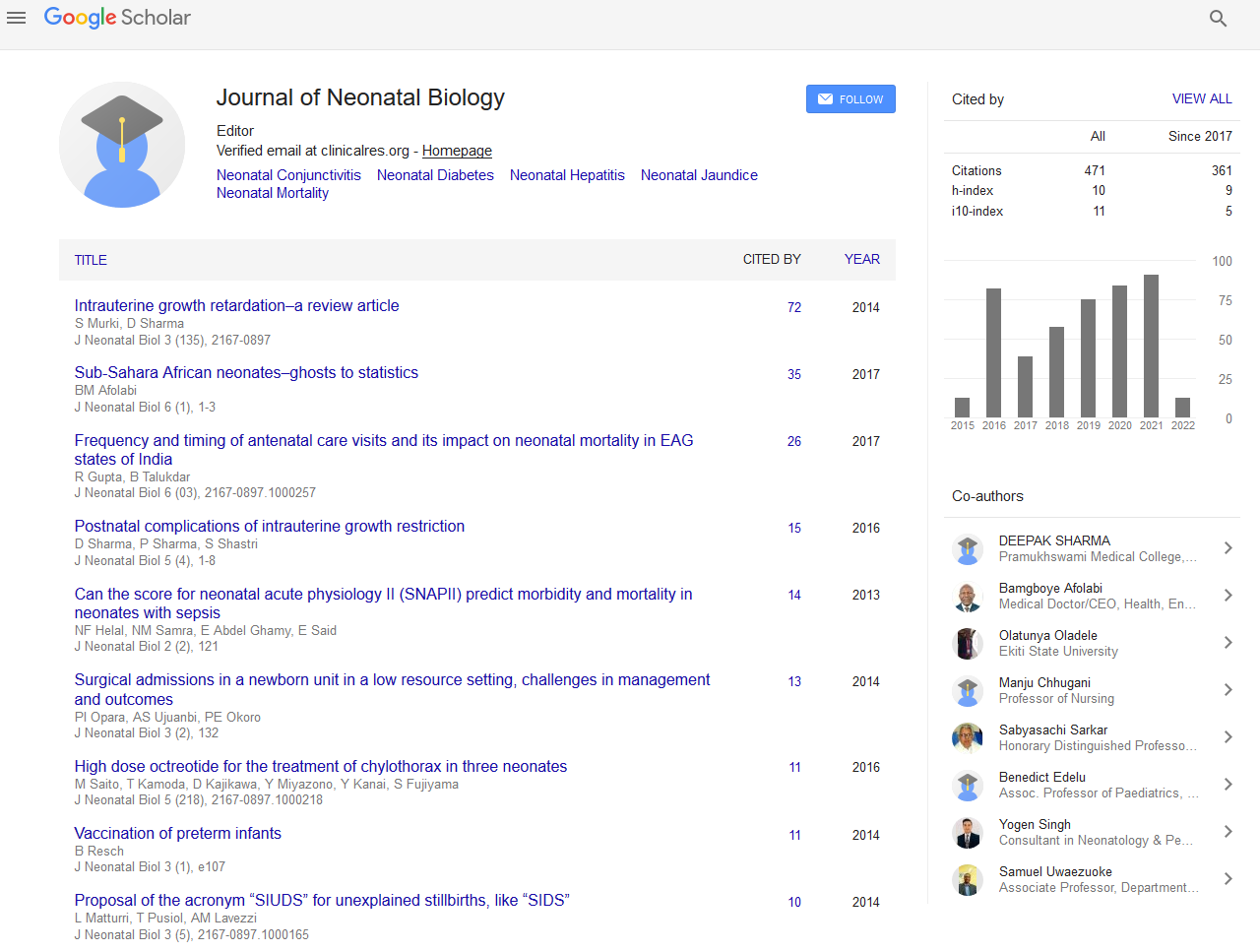PMC/PubMed Indexed Articles
Indexed In
- Genamics JournalSeek
- RefSeek
- Hamdard University
- EBSCO A-Z
- OCLC- WorldCat
- Publons
- Geneva Foundation for Medical Education and Research
- Euro Pub
- Google Scholar
Useful Links
Share This Page
Journal Flyer

Open Access Journals
- Agri and Aquaculture
- Biochemistry
- Bioinformatics & Systems Biology
- Business & Management
- Chemistry
- Clinical Sciences
- Engineering
- Food & Nutrition
- General Science
- Genetics & Molecular Biology
- Immunology & Microbiology
- Medical Sciences
- Neuroscience & Psychology
- Nursing & Health Care
- Pharmaceutical Sciences
Abstract
Surgical Admissions in a Newborn Unit in a Low Resource Setting, Challenges in Management and Outcomes
Opara PI, Ujuanbi AS and Okoro PE
Background: Outcome in neonatal surgeries has greatly improved in developed countries due to improvements in technology, and advances in neonatal intensive care. In developing countries however, there are several challenges with neonates requiring surgeries. The increasing incidence of congenital anomalies and thus neonatal surgical admissions calls for improvement in services for such babies. Aim: The study aimed to identify surgical diagnoses in newborns, challenges in management and outcomes of treatment.
Methods: This was a retrospective study of neonates with surgical conditions admitted into the Special Care Baby Unit (SCBU) of a tertiary health facility in Southern Nigeria over a 3 year period. Data obtained from their case notes included; age at admission, place of antenatal care, diagnoses, treatment received, challenges in management and outcome. Data were analyzed with SPSS version 16.0
Results: There were 132 surgical cases of 1487 admissions, giving a prevalence of 8.9%. There were 71 males and 61 females giving a M: F ratio of 1.2: 1. 80% were born outside the hospital. Mean age at presentation was 5±6. 39 days (0-28). Commonest diagnoses were disorders of the digestive system (63.6%) (mainly necrotizing enterocolitis, intestinal obstruction and omphalocoele), and neural tube defects (25%). The commonest surgeries were colostomies and exploratory laparotomies. Overall mortality rate was 28.0%, of which 51.3% were post-operative. Twenty four (18.2%) discharged against medical advice mainly due to lack of funds.
Conclusion: The overall mortality rate was high. Delivery outside specialized centres, late presentation, lack of facilities for peri-operative care, poverty and ignorance contributed to increased morbidity and mortality.


